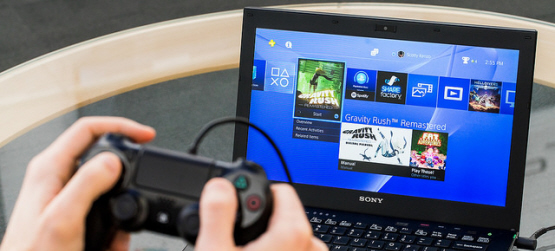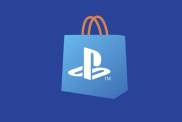Consoles as a service. That phrase might scare you if you already recoil at the sound of “games as a service,” but it’s increasingly looking like that’s the direction the gaming industry is headed in, and the writing is on the wall.
In news you wouldn’t have read on PlayStation LifeStyle, Microsoft announced today that the Halo Master Chief Collection is headed to Steam. You read that right. What is quite probably the Xbox’s most well-known exclusive is going to be available on PC. That’s like saying that the Uncharted series or God of War were going to be made available to play with a mouse and keyboard, but in this case, it’s actually happening. One big question surrounding this decision is “why bother buying an Xbox console anymore?” It’s something I’ve been asking for some time now after Microsoft began its Play Anywhere initiative that effectively makes every Xbox game also available on PC.
The answer is that you don’t, and Microsoft doesn’t care. GameDaily.biz’s Amanda Farough summed things up quite nicely.
Honestly? You probably won’t need to. And Microsoft isn’t going to care. Their money is in cloud services (up 24 percent as of last quarter) and this is going to make BANK. We’re heading into a service/cloud war for attention for the next generation.
— Amanda Farough (@AmandaFarough) March 12, 2019
The idea here is that the platform is no longer the focus. It’s the service. Think about the likes of Google, Spotify, Amazon, and others. Two people can be using the same Google services but be using myriad different devices. One person might be using the Google manufactured Pixel 3, while another could be using the Samsung Galaxy. Both still run on Android and allow for those services to follow them around no matter which piece of hardware they are using to access it.
Your favorite console manufacturers have been planting the seeds for this service-based future in video games, and we’re starting to see them bloom.
Xbox has been throwing a lot behind its Xbox Game Pass and shoring up the Xbox Live services, despite declining console sales. The idea is that you can be a part of the Xbox ecosystem from anywhere and on a variety of platforms, not just limited to a single box. While I doubt that Microsoft will entirely cut off manufacturing of consoles (just look at Google making devices for their services), the sale of those platforms won’t matter nearly as much because it’s the service itself that’s important.
If you’re skeptical, look back at a blog post from Microsoft last year about this very thing. “The future of gaming is a world where you are empowered to play the games you want, with the people you want, whenever you want, wherever you are, and on any device of your choosing.” That was announcing Project xCloud, a cloud-based gaming service untethered from the specific hardware of a console.
The Netflix/Spotify of Games
In many ways, we can look to the success of both Netflix and Spotify as inspiration for what a console’s service might look like. Those platforms partner with third parties to bring you content, while also offering a variety of exclusives in order to convince you to use their service over other similar ones. Xbox will do the same thing. Sign up for Xbox Live, Xbox Game Pass, and their own services, get exclusives you can only get through Microsoft while having the ability to play anywhere, whether its on a phone, a PC, or a living room console box.
Microsoft falling behind this generation with flagging Xbox One sales has actually allowed it to make leaps and bounds in this technology, biding its time and waiting for the right moment to launch. We’ve seen little things, like opening up to cross-platform play with Nintendo, that have signaled it may be ready to drop out of the “console wars.” Forget the competition of the box. Very soon we’ll see that its focus is on offering the best services possible. Microsoft already has the benefit of being a broader software company, which means it can combine gaming with the expertise of other aspects of the business in order to offer unique services to its customers.
If you want to get a peek at how the service could work, look at the announcement of Halo Master Chief Collection for Steam. The product page is already live and a small footnote says that it requires a third-party account login to Xbox Live. So even if you don’t console game at all but you want to play MCC on your PC, Microsoft still gets you in their ecosystem by signing up for that account. We saw the same thing with Fortnite cross-play on the Nintendo Switch.
What Does That Mean for PlayStation?
Right now? Not a lot. But I’d be surprised if Sony hasn’t at least explored this space. PS Now, PS Plus, and the PSN all have hints of wider service models, but most of them do rely on specific platforms in order to take full advantage of them. Sony hasn’t yet openly embraced allowing their proprietary services to make the jump to other platforms. I mean, remote play just barely got iOS functionality and we’re still waiting on Android. And you still have to have a home console in order to take advantage of that. PS Now breaks some of those barriers a little bit more, but the service is far more limited than what Microsoft is doing with Xbox Game Pass.
As we move into the next generation of console devices, I see Sony and Microsoft taking very different directions with their approaches to consoles as a service and gaming. Microsoft seems like they’ll move in a Google sort of direction, with a more open platform focused heavily on the services rather than the devices. They’ll rely on PCs to do the legwork, while probably introducing some living room boxes for those who want that simpler console solution.
Sony and PlayStation seem like they’ll stick with more of an Apple route. If history is any indication, their platform will remain more closed, with PlayStation services reserved for PlayStation devices (with a few exceptions outside of that). I still think we’ll see them taking a much more service-based approach to their console and gaming in general. Games are one of the last forms of media and technology to hold strongly onto the product-based mentality. We’ve seen music and movies shift away from it. We’ve seen convenience and home automation lean into connected services across a variety of devices. We’ve even seen games beginning to head in that direction, and if you think next generation is going to be anything like gaming of the past, you’re in for a rude awakening.
No, physical media isn’t going to entirely go away (much like it hasn’t gone away with movies or music), but we’ll see decreased importance in the physical product as not only digital overtakes it, but as being a part of a console’s service gains increased value. Much like developers and publishers want you as part of their game long term in “games as a service,” console manufacturers want you as part of their ecosystem. That means a “consoles as a service” approach, tethering people to an account rather than to a specific device. Like it or not, it’s the future of gaming, and hey, even Google wants a piece of the action.
Daily Reaction reacts daily to news from the video game industry. Have suggestions for the column or subjects you’d like us to react to? Let me know in the comments below and be sure to check out previous Daily Reactions for more dives beyond the headlines.










